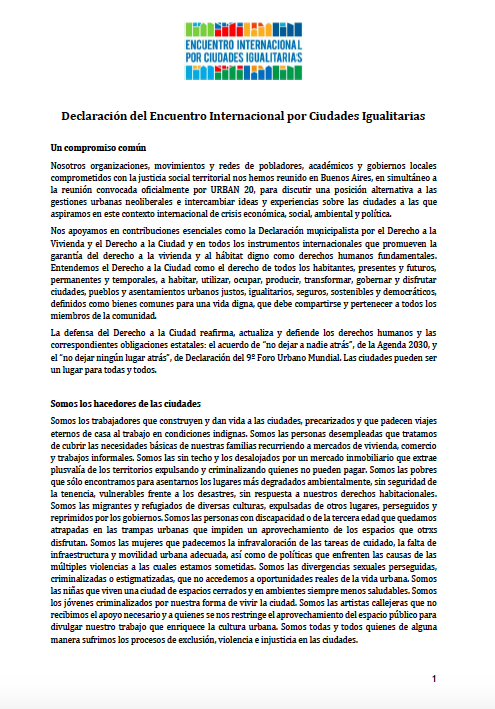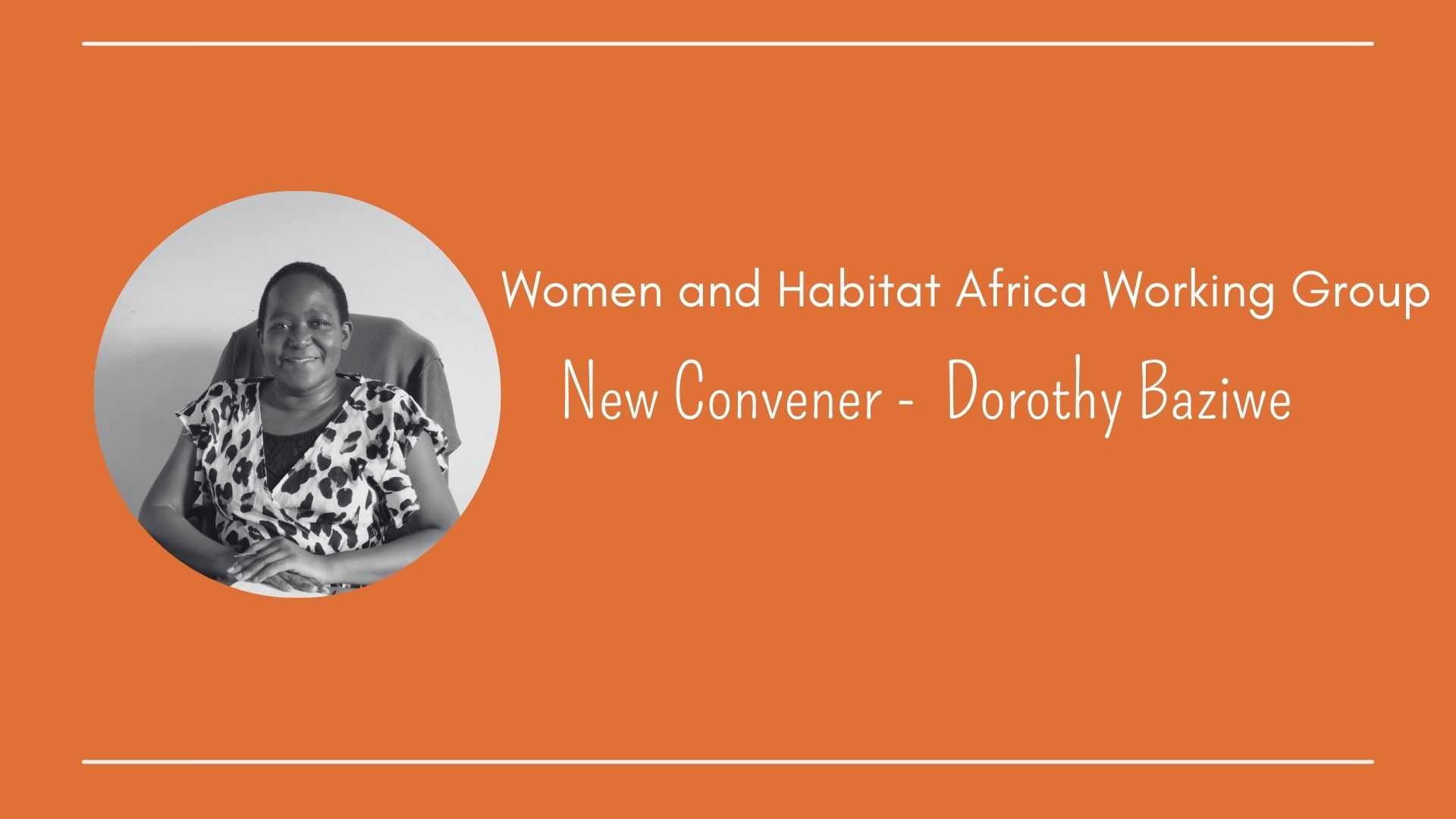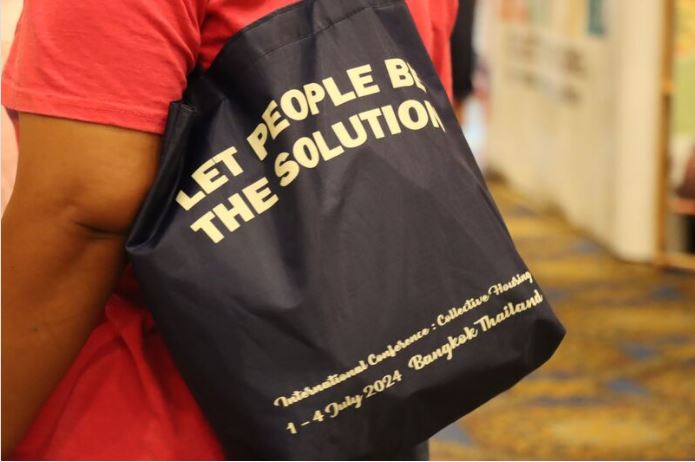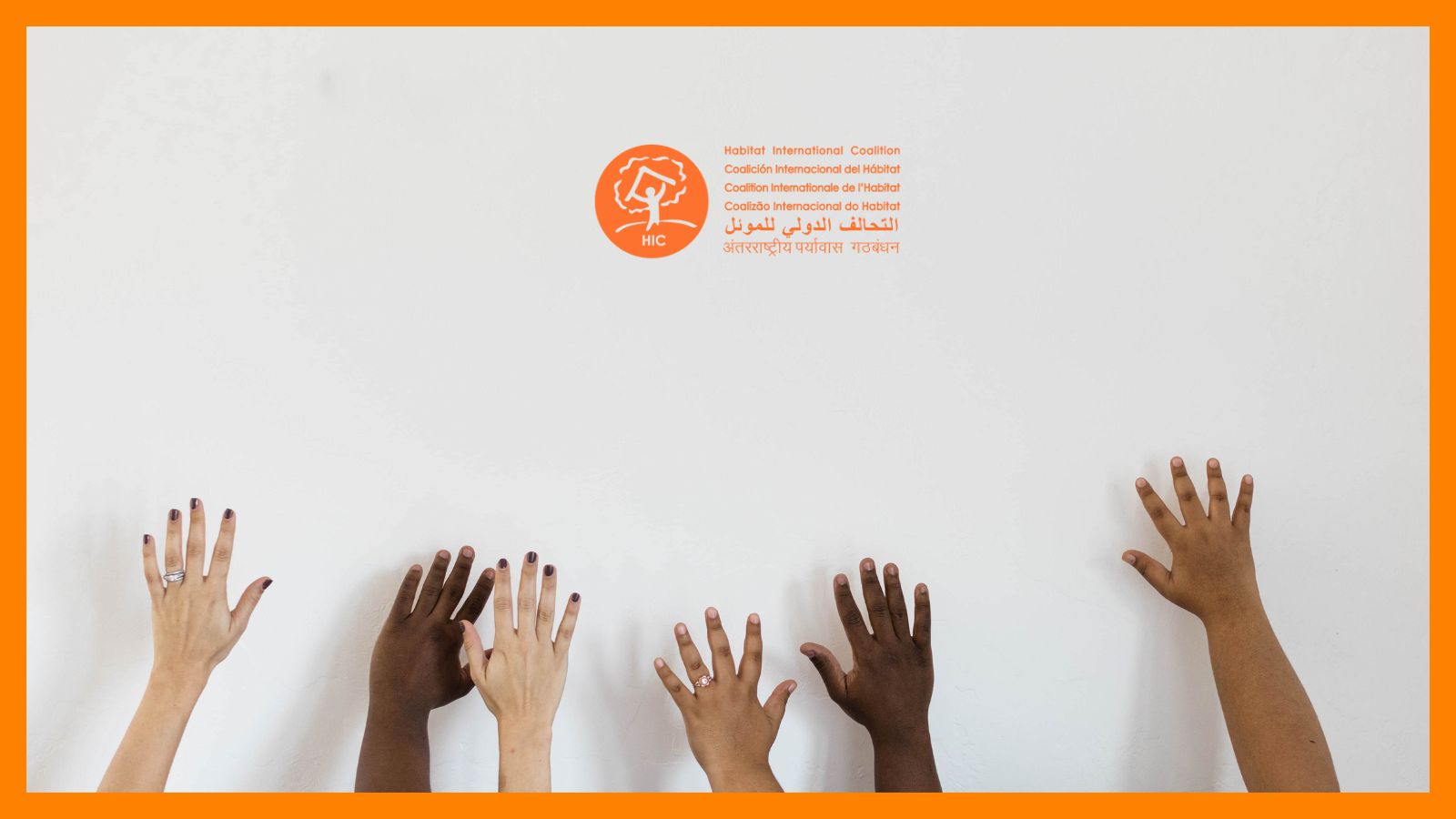We agree that sustainable human settlements, adequate shelter, and basic services for all are goals that can only be achieved through progressive policies that realize the universal Right to Housing, access to land, secure tenure, and provision of infrastructure. Illegal and forced evictions of thousands of people each year are an obstacle to slum and squatter improvement. The impact of militarism and war on human settlements is particularly destructive. Not only is the built infrastructure destroyed but also vast resources are reallocated from basic human needs. Privatisation of public or social housing and infrastructure creates shortages and displacement in many countries. The number of homeless and those inadequately housed continues to increase, deeply impacting the physical, mental and spiritual health of more than a billion people. In the coming decade this trend will account for more than an estimated 120 million additional slum dwellers, outpacing the Millennium Development Goal for slum improvement and eradication. Governments, civil society, and organizations involved in the construction of housing must therefore increase their efforts. In particular, governments and the private sector must stop mass forced evictions and the illegal destruction of houses. Critical to the improvement of human settlements is overcoming the dramatic and tragic situation of poverty that affects vast numbers of urban dwellers, especially slum and squatter inhabitants. We need time-bound goals to ensure that all people have easy access to land, safe drinking water, adequate sanitation, affordable transport and new and renewable energy sources even for traditional, hand made houses located in slums and squatter settlements. All of these necessities require financial support, individual and NGO initiatives locally, nationally and internationally. Security in human settlements is a prerequisite to sustainable development. Growing spatial and social segregation in cities contributes to social violence, which cannot be solved by security measures alone, but requires innovative governance mechanisms designed to enhance participation, transparency and accountability. We stand to work with governments and community organizations to provide sustainable livelihoods for women and men, especially experienced older persons and underemployed youth, and to extend job training opportunities to slum dwellers. Enabling national policies are necessary and critical to effective participation of all people to engage in the decision-making processes to plan, implement and monitor activities directed to their benefit. We urge the development and support of active local groups and particularly the application of information and communications technology that can facilitate these activities. Governments and civil society can facilitate and ensure the same access and full participation to indigenous peoples with regard to activities and measures as accorded to all citizens in conformance with the Declaration on the Rights of Indigenous Peoples. In response to the expansion of urban slums, NGOs have provided programs for land registration and tenure, affordable housing prototypes and best practices, training, advocacy and empowerment of the worlds poor. Governments and private sector institutions need to support and legitimize the production of housing and community facilities and to work with local organizations and community groups to define, plan, implement and fully fund the actions required to implement the Millennium Development Goals. NGOs that agree with this statement include ICOH (International Commission on Occupational Health) CHEC (Commonwealth Human Ecology Council) ARC*PEACE (Architects Designers Planners for Social Responsibility) AARP (American Association for Retired Persons) GHF (The Global Housing Foundation) The Salvation Army HIC (Habitat International Coalition) American Psychological Association International Council of Women Caribbean Policy Development Centre ELCI International Union for Land Value Taxation Integrative Strategies Forum CREUMHS (Cohort for Research on Environment, Urban Management and Human Settlements) Indigenous Environmental Network Rotary International Environment Liaison Center ARGOW (Africa Reference Group on Water) International Council of Psychologists International Federation of Aging Association of Former International Civil Servants Soroptomist International Maji na Ufanisi (Water and Development) NGO Southern Caucus
Declaración del Encuentro Internacional por Ciudades Igualitarias
En el marco del U20, organizaciones sociales, movimientos populares, redes de la sociedad civil, integrantes de la academia y autoridades locales comprometidas con la igualdad, los derechos humanos y la sustentabilidad se reunieron en Buenos Aires para proponer un compromiso común por Ciudades Igualitarias.




